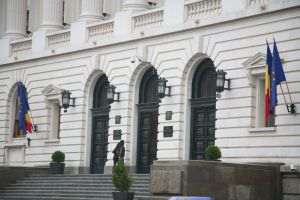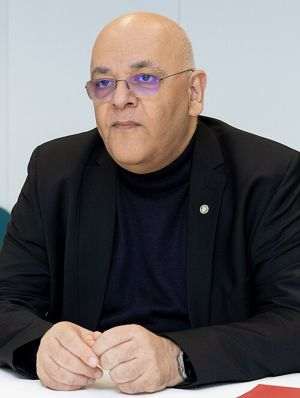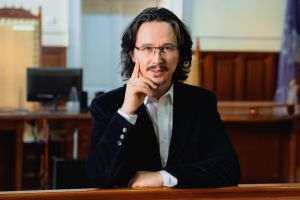Biroul Permanent al Senatului îi va pune în vedere Guvernatorului BNR Mugur Isărescu faptul că este obligat să meargă la Comisia Economică şi de Buget-finanţe, a anunţat, ieri, senatorul ALDE Daniel Cătălin Zamfir.
Votul BP al Senatului vine ca urmare a absenţei lui Mugur Isărescu la şedinţa Comisiei Economice de săptămâna trecută, deşi fusese invitat de Daniel Zamfir, preşedintele acesteia.
Parlamentarul ne-a spus, aseară: "Iniţial, convocarea era pentru ziua de mâine, dar domnul Guvernator ne-a anunţat că nu poate veni, pentru că mâine, la ora 11.00, la BNR urmează să aibă loc şedinţa de politică monetară. Am fost înţelegători şi i-am dat de ales între zilele de luni sau marţi, săptămâna viitoare".
Şeful băncii centrale a fost invitat, săptămâna trecută, de senatorul ALDE să discute despre modul de calcul al indicelui ROBOR şi pe marginea raportului BNR de anul trecut.
Purtătorul de cuvânt al Băncii Naţionale Dan Suciu a transmis că BNR este deschisă la dialog şi nu refuză o invitaţie asumată de Parlamentul României în ansamblul său.
Dan Suciu a declarat, săptămâna trecută: "Consiliul de Administraţie al BNR a fost numit de Parlament prin votul în plen şi, în consecinţă, o discuţie în Parlament se poate face cu reprezentarea şi acordul tuturor forţelor politice, cu implicarea Comisiilor de Finanţe - Bănci. Cadrul de aşa zisă discuţie pe care l-a pregătit domnul senator Zamfir nu a arătat reprezentativitatea parlamentară ca atare de vreme ce un alt senator a contestat invitaţia adresată BNR. A fost demersul unui politician care, din păcate, mizează pe un şir de false probleme cum ar fi manipularea dobânzilor, neprobată nici acum, şi nu o invitaţie onestă la discuţii".
La data respectivă, preşedintele Comisiei economice a Senatului, Daniel Zamfir, a spus că va solicita Biroului permanent, la începutul săptămânii viitoare, să-l invite pe guvernatorul BNR la audieri în comisiile de specialitate: "Invitaţia către guvernatorul BNR o voi trimite către Biroul permanent al Senatului, să decidă Biroul permanent dacă guvernatorul BNR are obligaţia să vină în faţa Comisiei economice. Chemăm şi Comisia de buget-finanţe. (...) Am convingerea că domnul guvernator va fi aici săptămâna viitoare (n.r. săptămâna aceasta) şi va da explicaţii senatorilor din cele două comisii".
Parlamentarul susţine că ROBOR este manipulat de bănci, sub supravegherea BNR, menţinând: "Lipsa domnului Isărescu era de aşteptat având în vedere lucrurile pe care ştia că trebuie să le discutăm la Comisia economică şi care îi creează mari probleme. Am avut indicii clare că BNR s-a implicat în manipularea ROBOR, dovezi evidente. Domnul Isărescu nu a vrut să se confrunte cu aceste lucruri, dar nu va putea fugi la infinit de această discuţie, pentru că sunt foarte mulţi ani în care ROBOR a fost manipulat de bănci sub protecţia şi cu implicarea BNR".



















































1. fără titlu
(mesaj trimis de anonim în data de 06.02.2019, 01:44)
gargaragiul asta nu obliga pe nimeni
1.1. fără titlu (răspuns la opinia nr. 1)
(mesaj trimis de anonim în data de 06.02.2019, 05:55)
Securistul Isărescu l-a depășit în vechime până și pe milițianul Mitică Dragomir de la ligă.
Parlamentarii români nu pot obliga niciun securist pentru că România e un stat securist.
1.2. fără titlu (răspuns la opinia nr. 1)
(mesaj trimis de anonim în data de 06.02.2019, 10:45)
Obsedatul ăsta insista!
1.3. fără titlu (răspuns la opinia nr. 1.2)
(mesaj trimis de anonim în data de 06.02.2019, 13:05)
Este un singur obsedat cu postari multiple, scrie si isi raspunde singur...
1.4. fără titlu (răspuns la opinia nr. 1.3)
(mesaj trimis de anonim în data de 06.02.2019, 13:06)
Platit de psd probabil
1.5. fără titlu (răspuns la opinia nr. 1.4)
(mesaj trimis de anonim în data de 06.02.2019, 18:17)
Propaganda securistă plătește clustere. Apoi proștii se multiplică! :))))))
2. fără titlu
(mesaj trimis de Constantin în data de 06.02.2019, 10:12)
Sa vedem pe turnătorul dovedit cu acte al Securității zis Isarescu poreclit Manole cum mai scapa de data asta fără sa dea explicații ?! Si trebuie anchetat masonul si pt subminarea economiei naționale timp de 30 de ani si vânzarea poporului roman intereselor străine !!!
3. fără titlu
(mesaj trimis de anonim în data de 06.02.2019, 10:14)
Hoțul de Isărescu trebuie demis .
4. Tara,tara , vrem profesionisti ! :)
(mesaj trimis de Un guru în data de 06.02.2019, 12:06)
Asa cum se dadea italianul ala medic se dau unii economisti :) Acum pe bune , a venit Isarescu , a discutat cu MF , au 2 saptamani sa studieze ,etc.Pacat ca pe unii i-a cam luat valul puterii .Zamfir chiar a facut lucruri bune in trecut in lupta cu bancile dar acum incepe sa exagereze dupa parerea mea.Cum naiba sa mai vina Isarescu daca doar ce a fost la MF ? Mai bine l-ar chema pe Valcov la comisie sa explice cum naiba a legat taxa aia taman de Robor , fapt unic in lume , iar in interviuri zice ca BNR poate redenumi robor si bancile sa nu plateasca nimic .. Acolo se fac legi serioase sau se joaca unii cu economia ?
4.1. Corect! (răspuns la opinia nr. 4)
(mesaj trimis de Pribeagul în data de 06.02.2019, 12:43)
Zamfir si Vilcov, jalnice personaje din corul infractorilor primitivi care au ajuns sa conduca mindra tara.
Este de neadmis ca societatea sa-i permita primitivului Zamfir sa se traga de bacinar cu Guvernatorul.
N-am citit interviul respectiv. A redenumi situatiile, faptele, conceptele este pentru infractorii ajunsi la conducerea tarii, spre rusinea acestui mindru popor, un fapt obisnuit, o metoda simpla prin care infractorii modifica realitatea, prin care fac din alb negru si din negru alb.
4.2. fără titlu (răspuns la opinia nr. 4.1)
(mesaj trimis de anonim în data de 06.02.2019, 12:48)
Propagandiste, până și existența securiștilor pe Pământ este limitată. Să vezi după ce s-o întâmpla nefericita întâmplare ce mai rămâne din prestigiul lui Măr SRL.
4.3. Mar , nemar , vorbim de principii (răspuns la opinia nr. 4.2)
(mesaj trimis de Un guru în data de 06.02.2019, 13:01)
Tati , aici vorbim de proceduri si specialisti.Tu te bati cu securistii folosind metode asemanatoare.Ca nu iti place Isarescu e una dar oug minune iti place ? Exact asa faceau securistii chemau la ordin diversi intelectuali care nu placeau oranduirii desi nu intelegeau economie sau alte stiinte.Daca tot luptati cu statul paralel nu va comportati ca el.Sau nu va deranjeaza comportamentele astea decat daca afecteaza pesedisti fruntasi ?
4.4. fără titlu (răspuns la opinia nr. 4.3)
(mesaj trimis de anonim în data de 06.02.2019, 18:20)
Nu există zdreanță securistă în lumea democratică aptă să refuze un Parlament.
Noi avem Kovesi și Isărescu pentru că România e un stat democratic cum ești tu un guru. :)))))))))
4.5. Un cetatean onest (răspuns la opinia nr. 4.4)
(mesaj trimis de Pribeagul în data de 06.02.2019, 20:13)
nu poate accepta ca distinsul guvernator al BNR, marele intelectual si experimentatul Isarescu, sa fie tras de bracinar, luat la intrebari cum si unde vrea un primitiv ca Zamfir.
Cit o fi el de parlamentar, in acest caz Zamfir da dovada de un comportament primitiv.
4.6. fără titlu (răspuns la opinia nr. 4.5)
(mesaj trimis de anonim în data de 06.02.2019, 20:56)
Un cetatean onest nu poate accepta supraoameni in institutiile statului, cu atat mai mult daca vorbim despre traducatori comunisti, colaboratori ai Securitatii.
4.7. Demopesedie :)) (răspuns la opinia nr. 4.4)
(mesaj trimis de Un guru în data de 06.02.2019, 22:58)
Ia zi ,tati , fii tu guru si zi cum drak au dat pretinii tai oug prin care nu mai raspund de corectitudinea datelor din buget ? Democratie zici ? Vreti sa iti dau o lista de legi pe care nu le respecta parlamentarii care cer respectarea legilor ? Io ca guru zic asa ca egzemplele trebe sa vina de sus in jos asa k trebe muuuulta educatie si respectare a legii in Parlament in primul rand.Ma doare la basc daca vine Manole la voi dar nu imi place ce vad nici la el nici la voi .
5. hai sa...
(mesaj trimis de gerula în data de 06.02.2019, 19:44)
ne imaginam ca suntem Isarescu... Eu sa fiu Isarescu, sa-mi scrie numele pe bancnote, sa fiu conducatorul unei banci centrale nu m--as prezenta de fel la nici o comisie din Parlament care sa discute roborul si politica monetara. Constitutia precizeaza clar - politica monetare se infaptuieste de catre Banca Centrala. Asta e... Ca aia au scris in Regulament ca trebuie sa prezinte orice persoana publica la comisii - e fix problema lor. Kovesi nu s-a prezentat, si-a pierdut functia in Romanica, dar va avea functie in Europa, nu a plecat capul. Isarescu are o cariera in spate, nu vad de ce sa se compromita cu zanfir si gasca aia de neispraviti.
5.1. fără titlu (răspuns la opinia nr. 5)
(mesaj trimis de anonim în data de 06.02.2019, 20:57)
Hai sa imaginam Romania fără Securitate.
5.2. More imagination! (răspuns la opinia nr. 5)
(mesaj trimis de Penelope în data de 06.02.2019, 21:54)
Towards a Just Economic Order:
Conceptual Foundations and Moral Prerequisites...
A statement of the Baha'i International Community to the 56th session of the Commission for Social Development
NEW YORK, 29 January 2018
“To eradicate poverty is to build the world anew - economically, but also morally, culturally, and socially.
A world without poverty, its communities and patterns of life, would bear little resemblance to the one around us today.
The Commission’s work of “eradicating poverty to achieve sustainable development for all”, therefore, is not simply a matter of expanding access to material resources, challenging as that can be.
Rather, it is an endeavor of structural and social transformation on scales never attempted before.
And the magnitude of that work calls for new ways of understanding individual human beings and society as a whole.
Conceptual models of what is normal, natural, and possible exert a powerful influence on personal behavior.
For example, individuals tend to make less generous choices the more they are exposed to the self-centered calculations inherent in classic economic theory.
Such models also inform the structures of society, privileging certain kinds of values over others and shaping ways of seeing, understanding, and approaching the world.
The models we employ, therefore, are of crucial importance.
Some help to release latent potential, confer greater clarity of thought, illuminate unexpected paths forward, and facilitate constructive action.
Others distort, constrain, and confuse.
Humanity has employed countless conceptual models throughout its history, their various elements contributing to progress in some instances and hindering it in others.
But regardless of what has come before, it is clear that the transformational change required today calls for new vantage points fr om which to explore challenges, assess realities, and imagine solutions.
We must therefore be prepared to assess - and if necessary, revise - the assumptions that have shaped the current international order and structures of society.
Consider, for example, the belief that humanity is inherently contentious and conflict is unavoidable.
That human behaviour is driven primarily by self-interest, and prosperity must therefore be based on the pursuit of personal advantage.
That the well-being of groups or nations can be meaningfully understood on their own, disconnected and in isolation fr om the well-being of humanity as a whole.
That the contemporary world is ch aracterized by a fundamental lack of human and material resources, rather than an abundance of them.
Notions such as these, implicit and unspoken in many cases, go largely unchallenged in contemporary discourse.
But their real-world consequences are significant indeed. Can the belief that human beings are inherently selfish be anything but destructive when applied in contexts such as the community, the family, or the school?
Can an understanding of economics grounded in a presumption of individuals or groups gaining advantage over others lead to anything but the grossly unequal conditions multiplying on every side?
Alternatively, what would global economic structures look like if collaboration were understood to be a more powerful driver of development than competition?
How would extremes of poverty and excesses of wealth be addressed if the good of the individual were truly understood to be inseparable fr om the good of the whole?
What policies would be enacted if governmental priorities were shaped primarily by the interests of the citizenry at large, rather than by the preferences of a sel ect few with privileged access to the halls of power?
Given the unprecedented pace of transition in the current age, the Bahá’í International Community calls on Member States and others at the Commission for Social Development to initiate a profound reevaluation of the assumptions on which development initiatives rest.
Efforts must be made to ensure that the policies being undertaken by the international community are consonant with the values it is espousing, that the propositions taken to be established fact are still valid in light of emerging global realities, that the axioms proclaimed in global fora are consistent with evidence encountered in the field.
Consider, for example, the disconnect between an age in which countless aspects of daily life are impacted by profound global interdependence, on the one hand, and on the other, pronouncements fr om the highest levels that well-being is best sought through the pursuit of narrow national interest.
Similarly contradictory is the supposition that unfettered competition could be compatible with the “collaborative partnership” and “spirit of strengthened global solidarity” envisioned in the 2030 Agenda for Sustainable Development and other United Nations initiatives.
These are issues of critical importance. Continued progress requires increasing clarity and depth of understanding about ourselves and the conditions around us.
Only to the degree that our mental map of the world is accurate can we hope to ch art a true course to a better future.
A systematic reassessment of this kind would involve actors of many types, within the United Nations and beyond.
Academics might investigate the foundations of current models and the benefits and risks of alternatives - for example, economic models in which prosperity is more broadly defined and no longer seen as a product of production and consumption alone.
Policy makers and arbiters of affairs at all levels might examine the presumptions underlying current policies and assess the possibility of unintended consequences - for example, whether assumptions of conflict in human nature might inadvertently perpetuate those very patterns of hostility.
Practitioners might evaluate whether operating procedures and approaches run contrary to organizational values, reinforcing perceptions of otherness and undermining a stated commitment to equal partnership with local communities.
What might the reframing of such a discourse look like in practice?
Consider the perceived lack of resources mentioned above.
Data clearly demonstrate that ours is a world of abundance, at least in the aggregate. Global per capita GDP, for example, stood at $16,143 in 2016 - a figure that would represent a vast increase in monetary resources for the majority of the world’s people. Similarly, more than enough food is produced to feed all of humanity today.
These are not new or novel observations. Yet countless discussions begin and end with a perceived lack of funds or supplies, rather than an exploration of why the vast resources available to the human race are utilized as they currently are.
Many organizations and individuals undoubtedly lack the resources they feel they need. Yet at the systemic level, the assumption that “there isn’t enough money” fundamentally misreads the relevant realities of the world.
Financial resources are becoming increasingly concentrated in certain segments of society, generating both unconscionable extremes of wealth and inexcusable depths of poverty.
Realities such as these are incompatible with the ideals of justice, equity, and dignity to which the global community has committed itself. In addition to moral considerations, these dynamics can be highly destabilizing and corrosive to the social fabric, and represent a clear and tangible danger to society.
Yet the worst of their effects can be ameliorated through adjustments at the level of policy and practice, and all actors - governments, companies, citizens - should acknowledge their responsibility in this regard.
The challenge, then, is not one of scarcity, but rather the choices and values that must inform the allocation of resources.
This example and others like it demonstrate the necessity of identifying the premises underlying approaches, and consciously exploring how they enhance or hinder efforts.
Equally important is the ability to articulate the principles that current procedures and systems should be translating into on-the-ground realities.
That the human race is one interdependent whole; that women and men are inherently equal; that force must be made the servant of justice; that truthfulness is the foundation of personal integrity and lasting social progress - if these are propositions that we believe in, our organizations and efforts must increasingly reflect and embody them at every level.
What is being called for is a review of the international community’s framework for collective thought and action.
Such an effort cannot be confined to a one-time initiative, if it is to be effective. Rather, deep reflection, woven into the ongoing functioning of the entire United Nations system will be needed.
Notable progress was made over the course of the Millennium Development Goals; the Sustainable Development Goals demand even wider vision and more creative thinking.
It is time, then, to reassess foundational beliefs about ourselves, the nature of our relationships, and the realities shaping the world we live in.
Only in this way can the groundwork for true and sustainable progress be laid.”
5.3. to feed all of humanity today (răspuns la opinia nr. 5.2)
(mesaj trimis de Silvia în data de 06.02.2019, 21:57)
Global per capita GDP, for example, stood at $16,143 in 2016 - a figure that would represent a vast increase in monetary resources for the majority of the world’s people. Similarly, more than enough food is produced to feed all of humanity today.
5.4. “there isn’t enough money” (răspuns la opinia nr. 5.3)
(mesaj trimis de Silvia în data de 06.02.2019, 21:59)
Many organizations and individuals undoubtedly lack the resources they feel they need. Yet at the systemic level, the assumption that “there isn’t enough money” fundamentally misreads the relevant realities of the world.
Financial resources are becoming increasingly concentrated in certain segments of society, generating both unconscionable extremes of wealth and inexcusable depths of poverty.
5.5. wider vision and more creative thinking. (răspuns la opinia nr. 5.4)
(mesaj trimis de anonim în data de 06.02.2019, 22:01)
Notable progress was made over the course of the Millennium Development Goals; the Sustainable Development Goals demand even wider vision and more creative thinking.
It is time, then, to reassess foundational beliefs about ourselves, the nature of our relationships, and the realities shaping the world we live in.
Only in this way can the groundwork for true and sustainable progress be laid.
5.6. Traducere in pesedita :) (răspuns la opinia nr. 5.4)
(mesaj trimis de Un guru în data de 06.02.2019, 23:06)
Ca sa luam noi cateva mii de coco pe luna am crescut salariul minim sa nu ziceti ca nu v-am scos din sarakie :)) Murim de grija voastra :) Cu spitale , scoli mai asteptati o tura doua :) Mai gonim din kapitalistii aia ca va fura .Va angajam noi pe toti :) Traiasca partidul ! Jos lenesii din diaspora si Soros ! :)))